By , RNZ.co.nz. Republished with permission.
With no plans to evacuate their citizens from Honiara, the international community is closely monitoring the situation in the Solomon Islands following a week of political unrest.
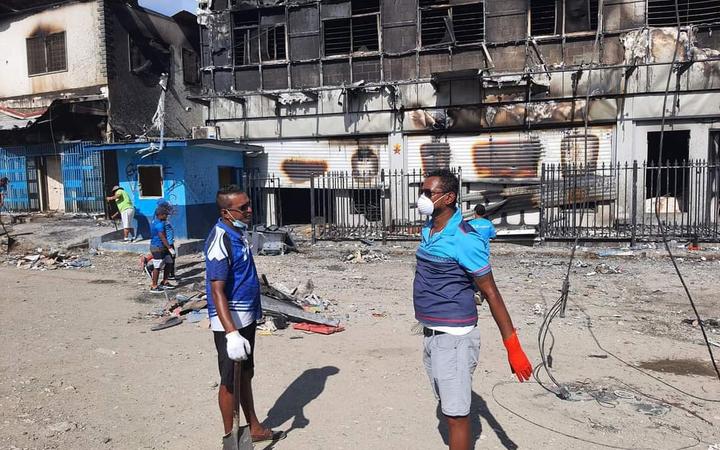
There’s an air of calm across Honiara this weekend.
Resident Claire Percel puts it down to the arrival of Australian and Papua New Guinea defence forces to help the local police.
She said the reinforcements have “really helped the situation but we’re still nervous”.
“Roadblocks now set up in key locations and I’ve seen them check vehicles. Local businesses have started cleaning up the streets and removing the burnt vehicles.
“I managed to get out of the house today for a grocery shop and visit some family. Was a really good change of scenery. I took my kids with me, was a very difficult conversation trying to explain why this happened,” Percel said.
There was rioting and looting across the capital following a protest at Parliament on Wednesday calling for the Prime Minister Manasseh Sogavare to stand down.
Mr Sogavare has since said he will not resign.
The tension escalated on Friday when more than 100 protesters reached Sogavare’s residence, throwing rocks while police with riot shields fired tear gas to disperse the crowd.
Australia and Papua New Guinea have deployed their defence force personnel to help the local police control rioting anti-government protesters.
Australian Prime Minister Scott Morrison said the Solomons reached out to his government for help. But he added Canberra was monitoring the situation in Honiara.
New Zealand officials are in contact with their citizens in Honiara and are aware that the travel plans of some have been disrupted.
A spokesperson from the Ministry of Foreign Affairs and Trade said the government has not yet received a formal request for assistance from the Solomon Islands government.
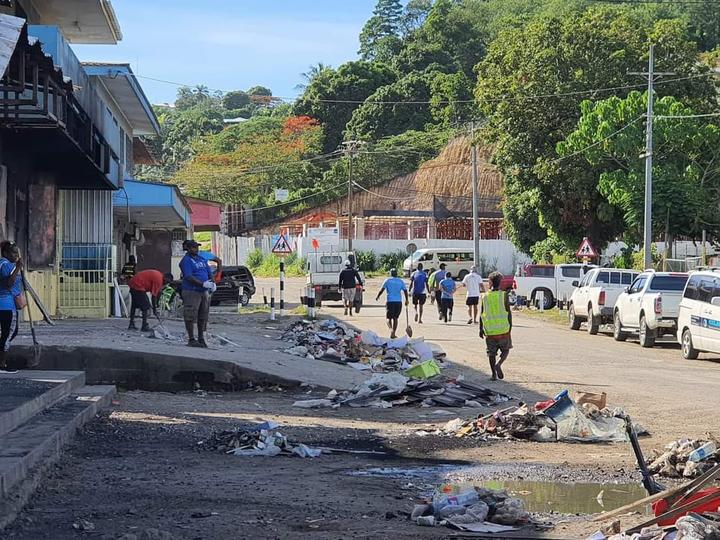
“We are not activating evacuation plans at this stage but remain in contact with relevant partners on the ground and are monitoring events closely.
“The New Zealand High Commission is providing Safe Travel advice to New Zealanders in Solomon Islands, including to follow the instructions of local authorities.
“New Zealanders in Solomon Islands should not rely on New Zealand government-assisted departures in an emergency,” the MFAT spokesperson said.
Fijians safe, govt says
Fiji’s government said its citizens in Honiara are safe.
Fiji’s consul-general to the Solomon Islands, Atueta Balekana, assured family members of the 400 Fijians living in Honiara their loved ones are safe.
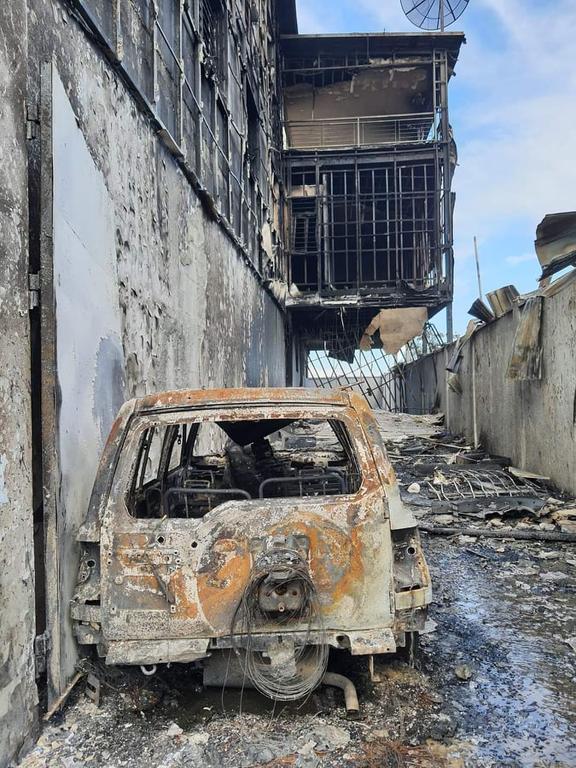
The only unfortunate incident for the Fijian community in Honiara, he said, was the torching of one of its members’ shops.
Balekana also said a former Fijian soldier working as a caretaker at one of Honiara’s biggest hotels was confronted by rioters.
However, the couple who own Oceanic Marine Equipment Ltd are safe and the security officer had sought the aid of hotel employees that were loyal to the Honiara-based Malaitans to protect the property.
“We have issued an advisory for all Fijians in the Honiara vicinity not to get involved in the rioting and to leave them as they are,” Balekana said.
“We have not come up with an evacuation plan as yet, but if things escalate we would have to resort to one.
“At this stage, we do not expect the situation to escalate any further as security forces have stepped in to control the situation.”
Balekana said the Fijian community’s contribution to the Solomon Islands’ development is widely respected and “we do not think that we are under any threat”.
“The Solomon islanders treasure our relations but it is good to always approach these situations with caution.”
Balekana said more than 45 Fijian citizens worked in Honiara, while there were more than 300 Fijians married to Solomon islanders.
Unrest forces workers home
Rotuman Kaitu Aisake arrived in Honiara in 2019.
Aisake said he immediately adjusted well to life in the Solomon Islands. He welcomed the locals and the lifestyle.
The recent events in the city took Aisake by surprise. He grew up in Fiji and had experienced political unrest.
Aisake said his office was among several businesses torched and looted by angry protesters on Friday.
Employees have been told to remain at home until further notice.
“The riots have always been politically motivated and they’ve always been targeting the township and industrial areas.
“The advice has always been consistent: just stay home. We will not return to work until the security situation can be confirmed that it is okay.”
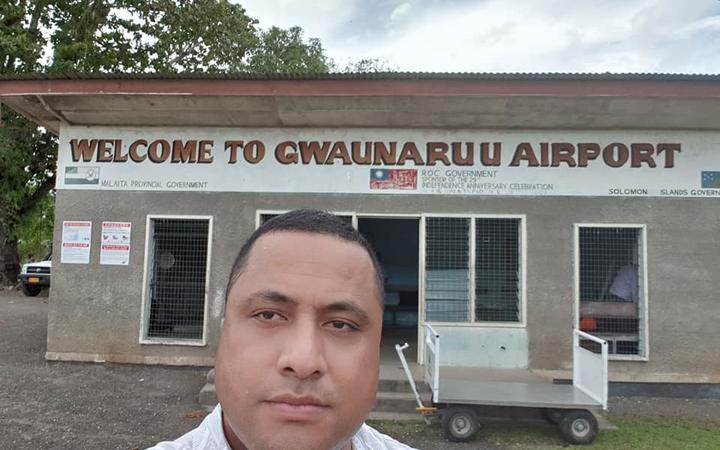
Aisake warned the political unrest in the Solomons has plunged the country further into “darkness”.
“This already had a huge impact without the lockdown. Our communities have already been deeply impacted. Unemployment, crime rates have gone up so socially everything is dysfunctional.
“The bright side is that we’ve managed to keep Covid out of our borders but now with this, this rioting – whichever way you try to look at it, the impact is really bad though.”
Aisake hopes the arrival of security forces from Australia and Papua New Guinea helps stabilise the volatile situation in Honiara.
Tough times ahead, says ex-NZ resident
Former New Zealand resident John Wopereis said it’s been a “tough week for everyone”.
He moved from Nelson to the Solomon Islands four years ago.
Wopereis said the events that took place in Honiara took his family and friends by surprise.
“This all happened so suddenly. We didn’t have anytime to prepare our families with food or gas – with businesses being burned, there’s a bank branch that got burned too.
“Hundreds of Solomon Islanders unemployed. Where are they going to get their money to feed their families? In a couple of weeks, it’s going to get very bad because there’s going to be a shortage of everything. There’s nothing left.”
He said the unrest may have started as “something political but spiralled out of control”.
Wopereis said people are taking advantage of the conflict with majority of them violating the laws.
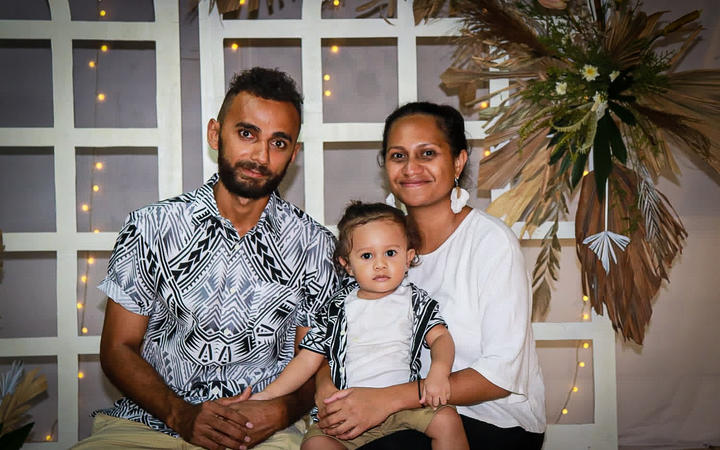
“People are not respecting what is being asked of them so whether or not we did have a lockdown or not, I think it’s just gone totally out of control. It’s very sad because it’s not only men, it’s children too. I’ve seen kids walking around with batteries, with cartons of soft drinks. It’s total chaos.
“I do feel that the Solomon Islands will bounce back from this. The events that unfolded really exposed a lot of underlying societal issues in the country that the nation can learn from and build back better.”
Meanwhile, an Air Kiribati crew are stranded in Honiara after arriving hours before the conflict started on Wednesday.
Pilot Captain Salote Mataitini said she was concerned at the escalating unrest in the country.
Mataitini and a colleague had only arrived in Honiara from Tarawa when the protests began.
She said their flight to Brisbane later that day was cancelled but they are now both safe in a hotel.
“I guess as a pilot you are really calm in stressful situations, I guess once I get back to Tarawa I will think about this experience.”
The Air Kiribati crew will leave Honiara in two weeks.
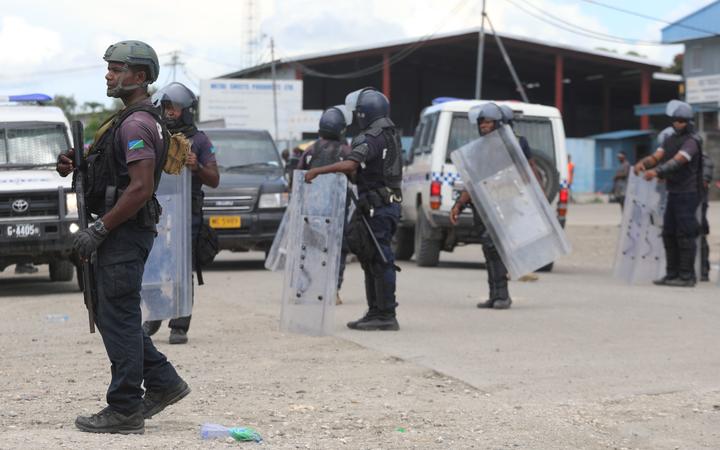

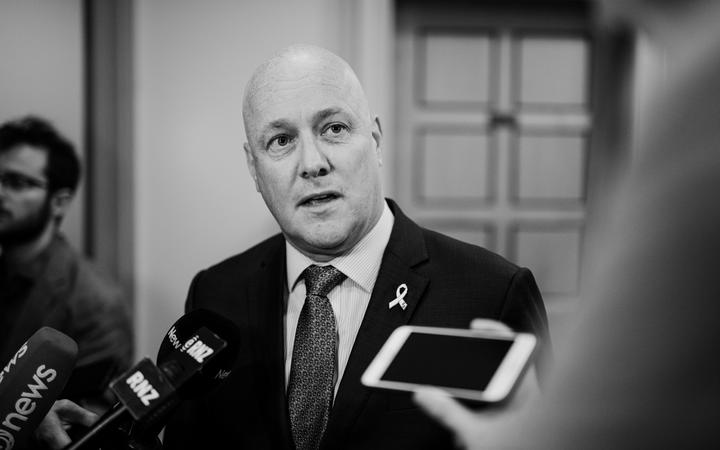
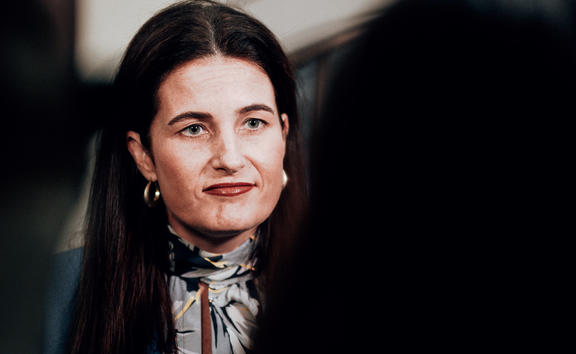
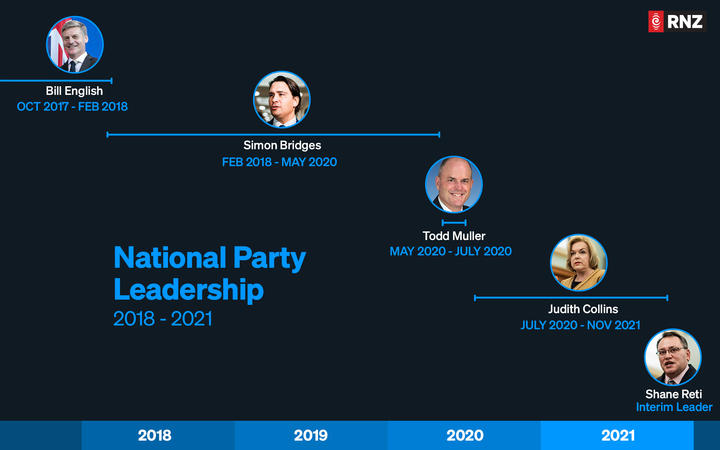

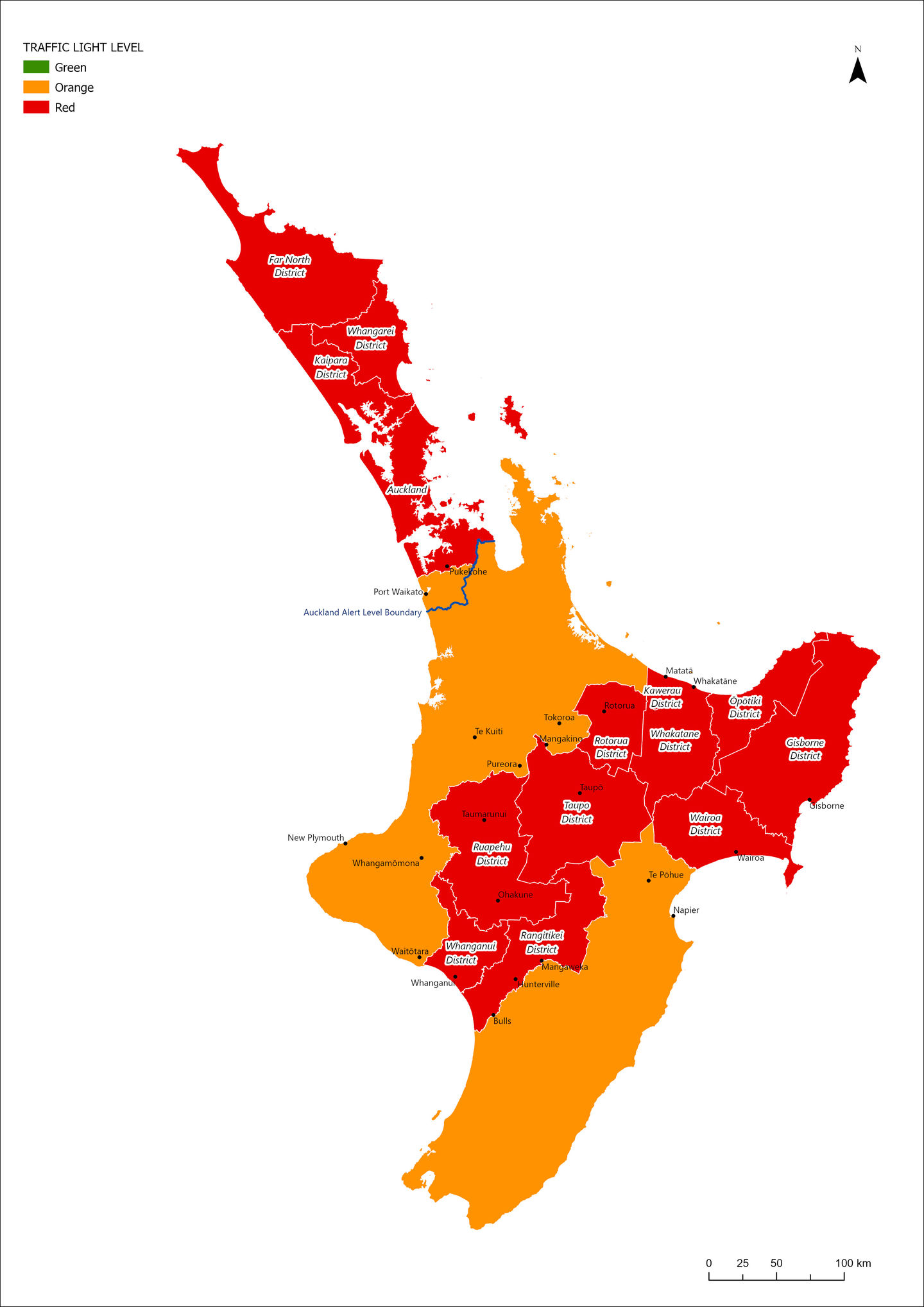
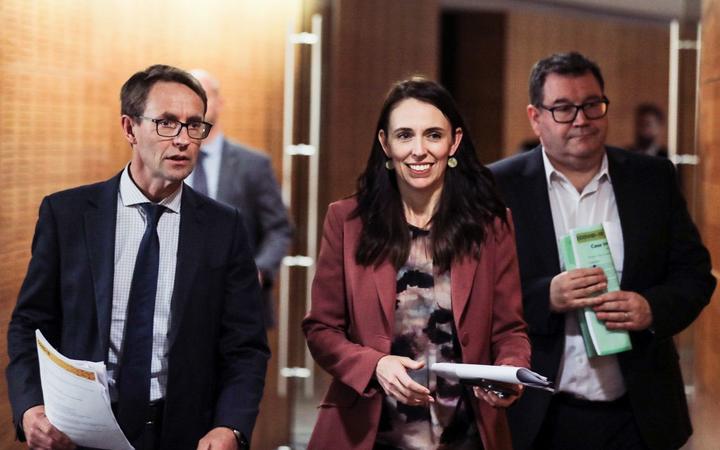
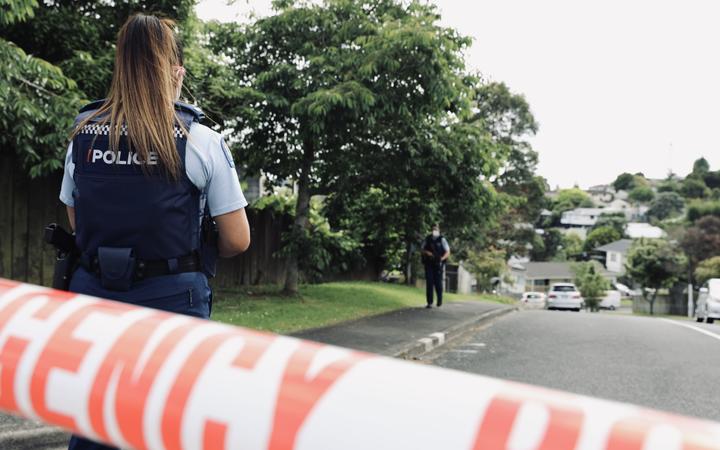
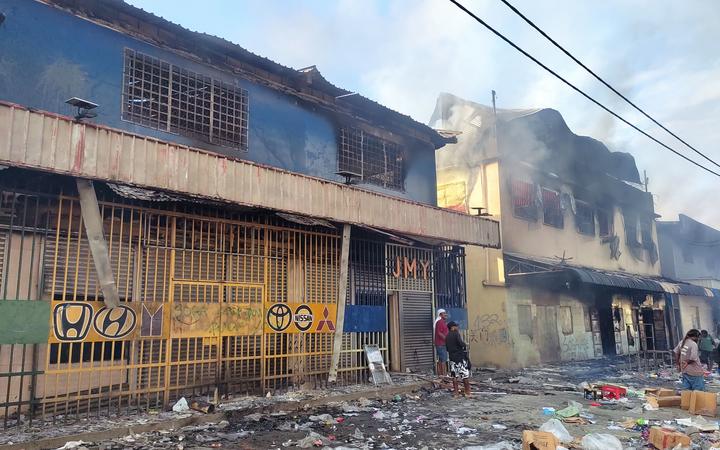

 Black smoke was pouring while the house going up in flames at Tufumāhina royal residence, a video clip taken near the scene shows.
Black smoke was pouring while the house going up in flames at Tufumāhina royal residence, a video clip taken near the scene shows.